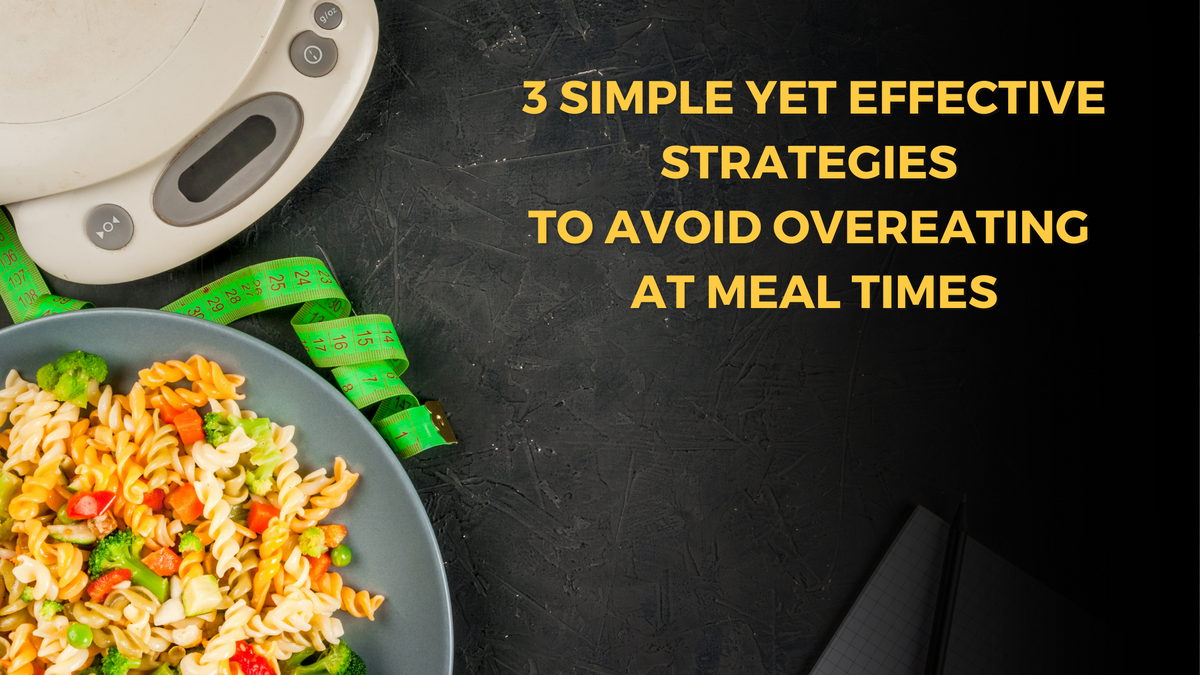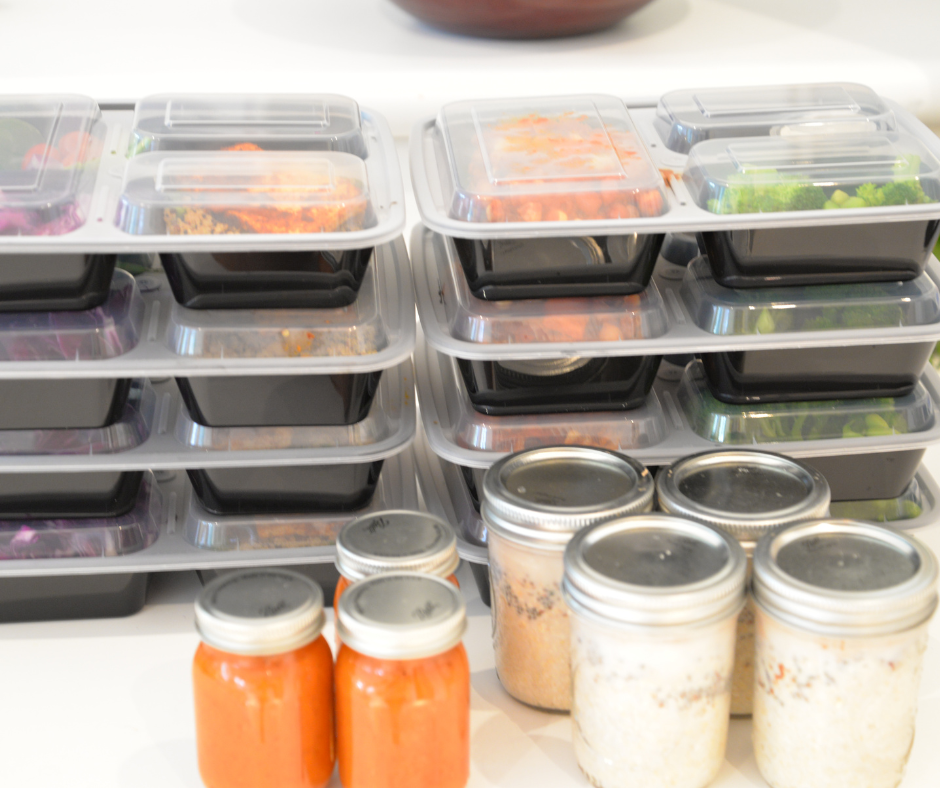3 Simple yet Effective Strategies to Avoid Overeating at Meal Times

When it comes to avoiding overeating at meal times, it's important to remember that everyone's journey is different and there isn't a one-size-fits-all solution. However, there are a few strategies that can help you to gain more control over your food intake and promote a healthier relationship with food.

One of the most effective strategies for avoiding overeating is to practice mindful eating. Mindful eating is the practice of being fully present during your meals, paying attention to the taste, texture, and aroma of your food, as well as the feelings and emotions that arise while you are eating. By focusing on the present moment, you can better tune into your body's hunger and fullness cues, which will help you to eat only when you are truly hungry and stop eating when you are full. To practice mindful eating, try to eat slowly and savour each bite, take regular breaks to check in with yourself and ask if you are still hungry, and avoid distractions like television or your phone.
Another strategy that can help you to avoid overeating is to use smaller plates and utensils. Research has shown that people tend to eat more when they are using larger plates and utensils. By using smaller plates and utensils, you can trick your brain into thinking you are eating more than you actually are, which can help you to eat less and avoid overeating. If you find that you're still eating more than you intended with the smaller plates, it's a sign that you may be eating too fast and not giving your body enough time to register fullness.
Lastly, meal planning can be a great way to avoid overeating. When we plan our meals in advance, we are more likely to make healthier food choices and not get caught off guard by hunger. It also helps to stick to a structured plan and make mindful decisions about what and how much to eat. You can set aside time each week to plan your meals and make a shopping list of the ingredients you need.

It is important to remember that overeating can stem from various reasons, emotional or psychological and it is important to address the root cause. If you find that you are struggling with overeating, it may be helpful to speak to a professional or consider seeking support from a therapist.
In summary, practising mindful eating, using smaller plates and utensils, and meal planning are some effective strategies for avoiding overeating at meal times. Try them out and see what works for you, and remember that it is a journey and be kind to yourself.
If you want to learn more about how you can improve your relationship with food, subscribe for exclusive content and coaching.